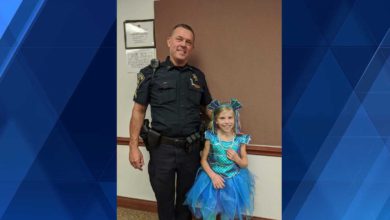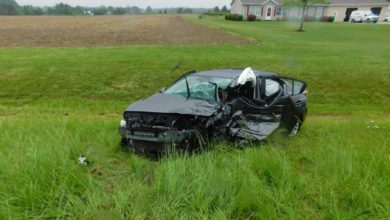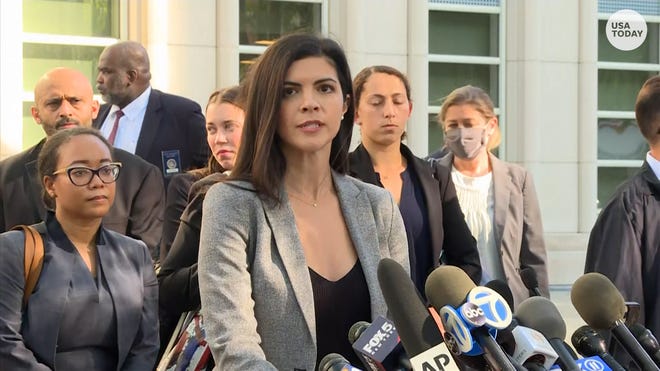
R&B star R. Kelly has been convicted in New York following a six-weeklong trial featuring graphic testimony from dozens of accusers.
A jury of seven men and five women found the 54-year-old guilty Monday on all nine counts of sex trafficking and racketeering, on just the second day of deliberations. Kelly remained motionless, eyes downcast as the verdict was read.
The charges were based on an argument that the entourage of managers and aides who helped the singer meet girls – and keep them obedient and quiet – amounted to a criminal enterprise under the federal laws originally aimed at stopping organized crime.
Kelly was also convicted of criminal counts accusing him of violating the Mann Act, which makes it illegal to take anyone across state lines “for any immoral purpose.”
Kelly's lawyer Deveraux Cannick said he was disappointed by the verdict. “I think I’m even more disappointed the government brought the case in the first place given all the inconsistencies,” Cannick said.
The charges date back decades and stem from six complaining witnesses, including the late singer Aaliyah, called Jane Doe No. 1 by prosecutors. Kelly, whose real name is Robert Sylvester Kelly, didn't take the stand during his trial.
Kelly, who has been behind bars since his arrest in July 2019, faces up to 20 years in prison. Sentencing is scheduled for May 4.
“To the victims in this case, your voices were heard and justice was finally served,” Acting U.S. Attorney Jacquelyn Kasulis told reporters outside the courthouse in Brooklyn after the verdict.
Peter Fitzhugh, a Homeland Security agent who helped lead the investigation into the R&B star, said the verdict brought an end to Kelly’s “decade-long reign of terror over many vulnerable girls, boys and young women.”
More:Everything that happened during R. Kelly's sex-trafficking trial, up to the guilty verdict
Gloria Allred, the women's rights attorney who represents three of the accusers who testified and whose allegations formed the basis of some of the charges, praised her clients' courage and the work of federal investigators and prosecutors.
"Justice has been done," Allred said. "Let this be a message to other celebrities who also use their fame to prey on their fans and others who are unfortunate enough to come into contact with them. You are also likely to face serious consequences for your criminal conduct.
"The issue is not if the law will catch up to you. The only question is when," she said.
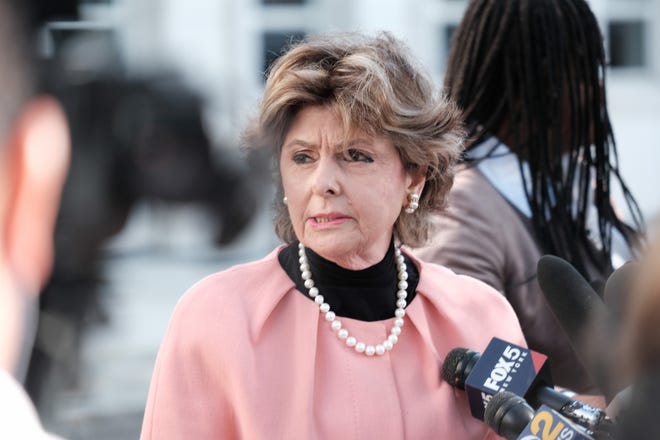
The verdict comes 13 years after Kelly was acquitted of 14 counts of child pornography charges in 2008 by a jury that deliberated less than eight hours over two days.
Kelly still faces similar federal and state charges in Illinois and in Minnesota; it is not yet clear how the verdict in Brooklyn will affect those cases or when they might reach a trial.
Prosecutors rested their case against the R&B singer following six weeks of testimony from multiple witnesses who accuse him of sexual and physical abuse. Their accounts included profane video and audio recordings that prosecutors say document how he threatened accusers with violence.
"It is now time for the defendant, Robert Kelly, to pay for his crimes. Convict him," Assistant U.S. Attorney Elizabeth Geddes told jurors on Thursday in her closing arguments in federal court in Brooklyn.
Kelly “believed the music, the fame and the celebrity meant he could do whatever he wanted,” Assistant U.S. Attorney Nadia Shihata said in the courtroom.
But, she added, “He’s not a genius, he’s a criminal. A predator.” She added that his alleged victims “aren’t groupies or gold diggers. They’re human beings.”
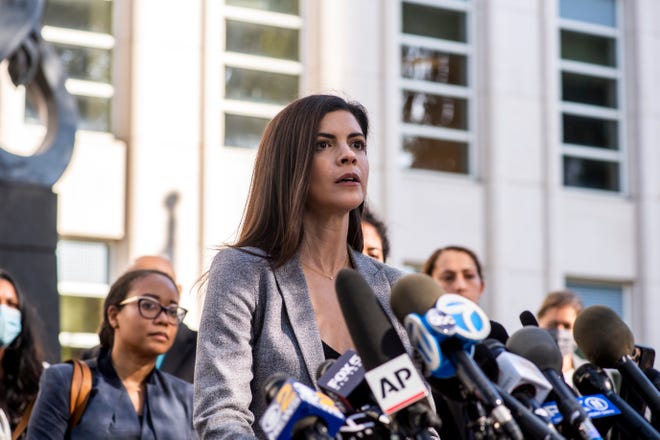
The defense hit back Thursday, telling the jury they've been misled by opportunistic accusers about consensual relationships.
In his closing, defense attorney Cannick told the jury that testimony by several accusers was full of lies, and that “the government let them lie.”
Cannick argued there was no evidence Kelly's accusers were ever forced to do anything against their will. Instead, Cannick said, Kelly's girlfriends stuck around because he spoiled them with free air travel, shopping sprees and fancy dinners – treatment that belied the predator label.
“He gave them a lavish lifestyle,” he said. “That’s not what a predator is supposed to do.”
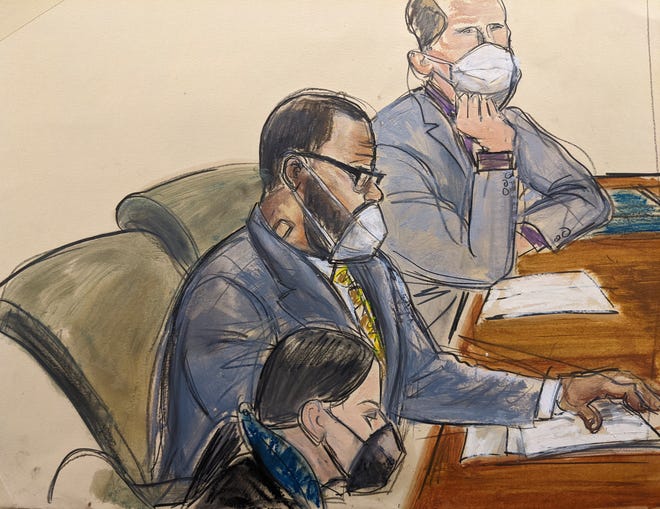
R. Kelly:Jury begins deliberation on singer’s sex trafficking and racketeering charges
More than 45 witnesses testified, including five complaining witnesses who said Kelly subjected them to perverse and sadistic whims when they were underage.
The first complaining witness to take the stand was Jerhonda Johnson Pace, who previously shared her story in the Lifetime docuseries "Surviving R. Kelly." In court, she alleged she had sex with the singer when she was 16, although she initially told him she was 19.
Pace testified that Kelly recorded their sex sessions, later showing the recordings to her to point out where she could use “improvement.” She said she "ended up contracting herpes" while she was with Kelly in 2009.
The R. Kelly trial shocks us: Here's what shouldn't
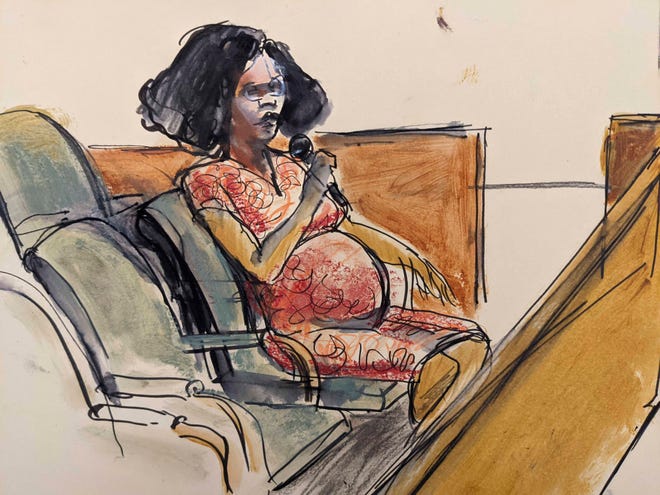
The second accuser, who called herself "Jane" on the stand, said when she first met Kelly, he pressured her for sex before an audition. She said she moved in with him while still a junior in high school and testified Kelly chastised or punished her for various reasons during their time together, including forcing her to have sex with another man while Kelly recorded it on an iPad. She was also coerced into getting an abortion in 2017 after Kelly said he wasn't ready to have a child with her, she said, and testified the star gave her herpes.
She also alleged Kelly made his girlfriends practice answering questions about him to better defend him during his volatile CBS interview with Gayle King.
The third complaining witness, who called herself "Stephanie," said in 1999 she sought out Kelly to help a friend with her singing aspirations. Kelly subjected her to a monthslong abusive sexual relationship when she was 17, during which he frequently videotaped their sexual encounters, she testified. His sexual demands and videotaping of her in humiliating positions left her "disgusted," she told the jury.
Another complaining witness, "Faith," said she was exposed to a sexually transmitted disease after meeting Kelly at a backstage after-party in 2017 when she was 19. She said the singer paid for her flights and hotel rooms to attend his concerts in cities where he demanded sex from her. When questioned by the prosecution, she said Kelly did not tell her he had herpes and did not wear condoms.
The fifth complaining witness alleged Kelly locked her in a darkened, windowless room for days and raped her while she was unconscious. The witness said she spent two days in captivity before finally being given something to eat.
Kelly's former assistant and tour manager, Demetrius Smith, testified under subpoena and immunity from prosecution that he helped facilitate Kelly's illegal 1994 marriage to the late singer Aaliyah, then 15, after he began a sexual relationship with her and believed she had become pregnant.
Prosecutors said Kelly, then 27, wanted to use the marriage, which was later annulled, to shield himself from criminal charges related to having sex with a minor and to prevent her from testifying against him. Aaliyah died in a plane crash in 2001 at age 22.
Contributing: The Associated Press, Charles Trepany





